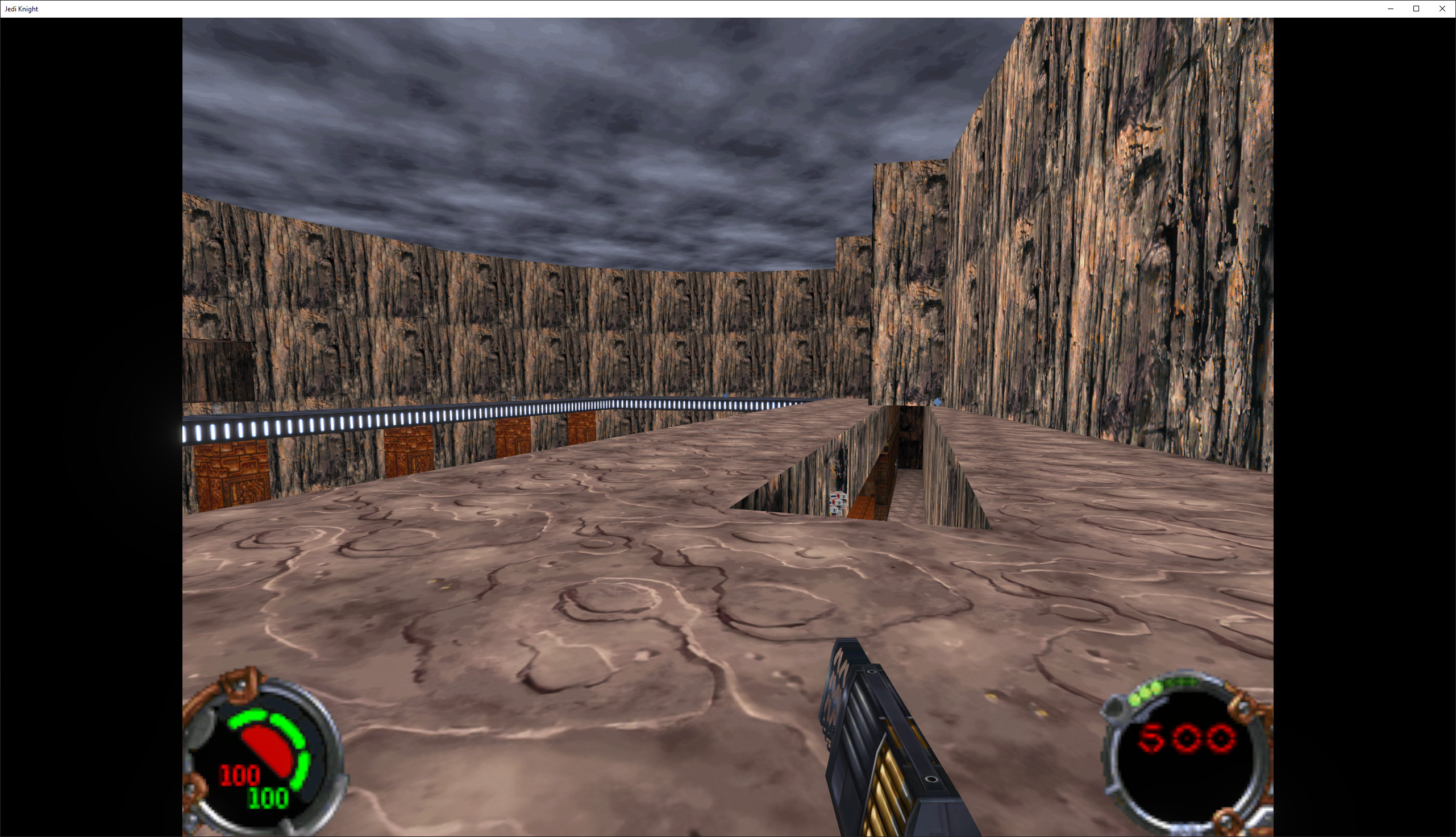I think that games can be art as well, and even in the pretentious way that Ebert, Moriarty, and Reid define "great" art. Jon`C hit the nail on the head by pointing out that this kind of art necessarily has some kind of narrative; or, more broadly, we could leave it as "having something to say".
Jon said some stuff about how agency is at odds with narrative, which makes a lot of sense to me. And at their heart, the vast majority of games throw the player into some kind of simulation, and usually any kind of "narrative" to go along with it is subservient to it, and the results are usually laughably bad (would anybody enjoy watching the Jedi Knight cutscenes in order if they never played or knew anything about the game? Or the same with Diablo II?). Likewise, when
movies give up on a decent narrative and rely on CGI, the result is painful and boring, like in the Hobbit.
But, I mean, I don't think we need to imagine a "Choose Your Own Adventure" version of James Joyce to combine artistic narration with simulation. There are some really elegant things you can do with regard to player choices that definitely reflect what the artist has to say, and thus reflect some kind of unspoken narrative: in this thread somebody mentioned Dishonored (never played it), where the choice of committing violent acts are met with consequences, and these consequences
say something that provokes thought.
But that's just how I might argue that games can be the kind of pretentious art that Ebert / Moriarty / Reid are arguing in favor of. I actually think the idea that games
need to be like so to be pretty obnoxious and just wrongheaded, because as Jon has said, I think games are better thought of as their own thing. I mean, you could say that certain games are good or bad by some external standard, and you'd basically be talking down to the vast majority of gamers for enjoying something that, I contend, can nevertheless be considered art without saying things about society that you seem to care about more than anything else (hello Gamergate).
For example, look at Morrowind. I didn't mention the whole notion of worldbuilding, but if Lord of the Rings is art (what does it even say about society? And is this important to enjoying what makes LotR so significant?), then Morrowind is too, IMO, and it doesn't matter if it has anything to say that extends outside the game, because in my opinion it has lots and lots to say about the world of Vvardenfell
itself, which is such an immersive world all unto itself, that you don't need to resort to existing society for art to enter the picture.
Which sort of raises the question: is
Star Wars art? It's a world unto itself, and with only shallow and naive things to say about actual society. I can totally understand why literary critics don't care for it, because like Morrowind, it's its own thing, i.e.,
you are the one responsible for actively immersing yourself in it in order to see the art, whereas such people are far too up their own ass to care about that before snubbing it for being inferior to the "great" works.
I may as well ask: is Beethoven's Ninth symphony great art? By the reasoning of this Moriarty guy, no, it's not. Which frankly, is a worldview that I find quite sad.
tl;dr: "art" doesn't need to have the capacity to change your view about things that are, if it creates a large enough world to be artistic about structures arising in it that never were (to paraphrase a Shaw quote a little bit).
Edit: bonus question: is
Rushmore "great art"? Is there a meaningful narrative in
any Wes Anderson movie?

More importantly, since the artistic merit of triumph of form and feeling over meaning and narrative that are Wes Anderson's movies seems to be widely recognized, why shouldn't the similar triumphs in games be as well?

 More importantly, since the artistic merit of triumph of form and feeling over meaning and narrative that are Wes Anderson's movies seems to be widely recognized, why shouldn't the similar triumphs in games be as well?
More importantly, since the artistic merit of triumph of form and feeling over meaning and narrative that are Wes Anderson's movies seems to be widely recognized, why shouldn't the similar triumphs in games be as well?


